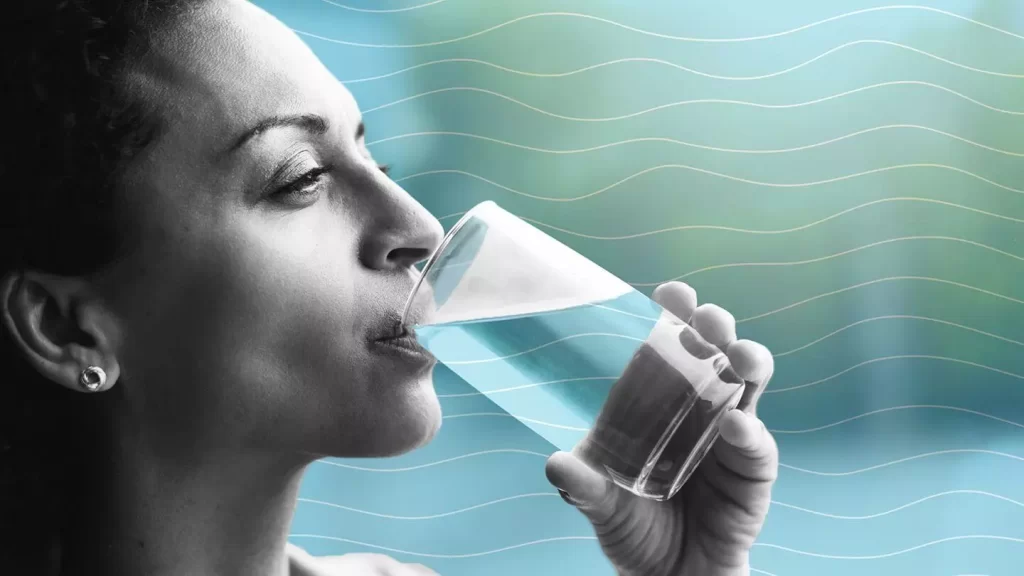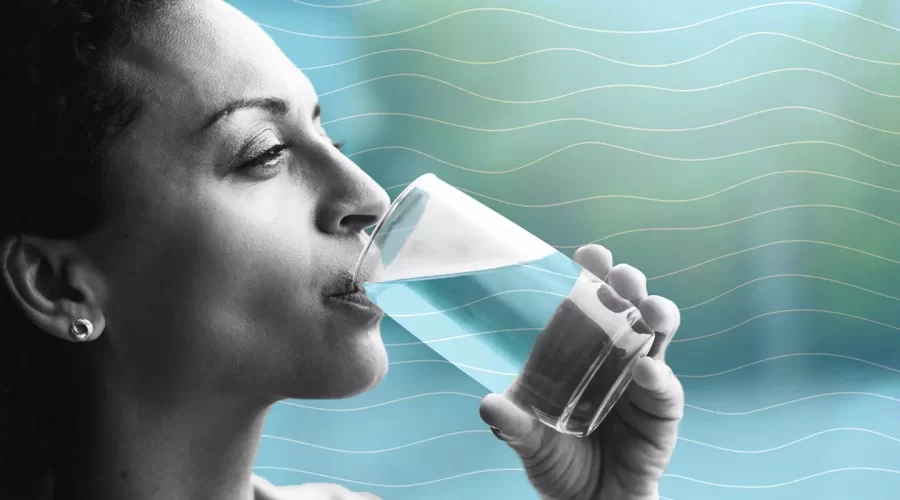Hydration 101 – Understanding the Link Between Water Intake and Overall Health
We’ve all heard it before – staying hydrated is essential for good health. But do we truly understand the significant impact of proper water intake on our overall well-being?
Hydration goes beyond quenching our thirst; it plays a vital role in various bodily functions, from digestion to temperature regulation.
In this comprehensive guide, we’ll explore the importance of hydration, how much water you need, signs of dehydration, and practical tips to stay adequately hydrated for a healthier you.

The Importance of Hydration – More Than Just H2O
Water is the elixir of life. It makes up a significant portion of our bodies and is involved in almost every bodily process. From transporting nutrients and oxygen to cells, lubricating joints, and flushing out toxins, to maintaining a stable body temperature – proper hydration is the key to unlocking peak performance for your body.
How Much Water Do You Really Need? – It Varies
There’s no one-size-fits-all answer when it comes to daily water intake. The amount you need depends on various factors such as age, weight, activity level, climate, and overall health. Aim for about 8 cups (64 ounces) daily as a general guideline, but listen to your body and adjust accordingly.
Signs of Dehydration – Listen to Your Body
Recognizing the signs of dehydration is crucial in preventing its adverse effects. Early indicators include dry mouth, dark yellow urine, fatigue, and headache. If you experience these symptoms, reach for a glass of water to rehydrate.
Hydration and Exercise – Stay Fueled
During exercise, your body loses water through sweat, and staying hydrated is essential for optimal performance and recovery. Drink water before, during, and after your workout to replenish lost fluids and electrolytes.
The Role of Water in Weight Management – A Powerful Ally
Drinking water can aid in weight management. Often, we confuse thirst with hunger, leading to unnecessary snacking. You can control your appetite and avoid consuming extra calories by staying hydrated.
Beyond Water – Hydrating Foods and Beverages
Remember that hydration doesn’t solely come from drinking plain water. Many fruits and vegetables, such as watermelon, cucumbers, oranges, and celery, have high water content. Herbal teas and infused water can also add flavor and hydration to your routine.
Debunking Hydration Myths – Know the Facts
Numerous myths surround hydration, like the “8 glasses a day” rule. Debunk these myths with science-backed information and adapt your water intake to your individual needs.
Hydration Tips for Busy Lifestyles – Stay on Track
In our fast-paced lives, it’s easy to forget to drink enough water. Set reminders on your phone, carry a reusable water bottle with you, and make it a habit to take sips regularly throughout the day.
Hydration and Skin Health – Drink Your Way to Glowing Skin
Proper hydration is the foundation of healthy, glowing skin. Water helps maintain skin elasticity, prevents dryness, and aids in clearing toxins from the body, promoting a radiant complexion.
Mindful Hydration – Cultivate a Healthy Habit
Make hydration a mindful practice. Listen to your body’s cues, savor each sip, and appreciate its positive impact on your well-being. A well-hydrated body is a happy body.
Article Summary!
Hydration is more than just drinking water; it’s a key component of overall health and well-being. Proper hydration impacts everything from digestion and skin health to exercise performance and weight management. Listen to your body’s signals, and consciously stay hydrated throughout the day.
By understanding the link between water intake and overall health, you can unlock your body’s full potential and enjoy a happier, healthier life. So, raise your glass to hydration and drink your way to a better you.

Gina Jordan is a health blog author who has been writing about healthy living since 2013. She started her journey by adopting a vegan diet and eating only organic foods, but the more she learned, the more she realized that we should all be eating plant-based diets exclusively. As an expert in nutrition and wellness, Gina blogs to educate readers on how they can live happier and healthier lives through food choices!













